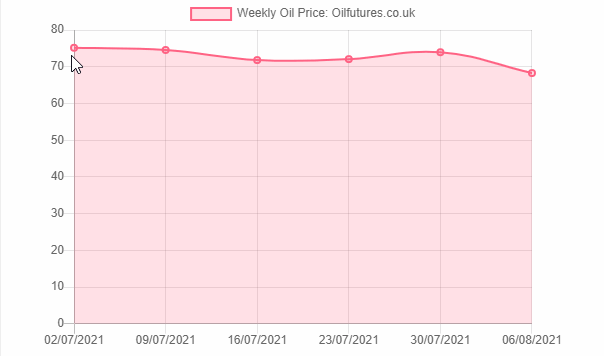The price of crude oil dropped significantly while
recording the biggest drop since October last year; it did coincide with the
rise in the US inventories for the week ending July 30, by over 3.6 million
barrels.
There is a combination of factors that clearly has
been driving the price of crude oil down in recent days: at the top of the list
is the less-than-expected growth in China, despite multiple reports indicating to
the contrary, months ago; in proportion to the slower growth, China’s oil
imports declined as expected and the effect is significant because it is the
world’s top importer of the commodity.
To make matters worse, there are new outbreaks of
the Delta variant in a few major cities in China and the corresponding
lockdowns in turn bring down the traffic and demand for oil.
Although China is taking effective measures to
control it from spreading to other cities, the lockdowns will remains for
weeks, bringing the economic activities in the cities to a standstill.
The rising infection rate across India is also a
major concern. Moreover, the situations in Japan, Malaysia, Vietnam, Indonesia
and Thailand are getting worse, with the blame-game clearly directed at the
authorities of respective countries – sometimes, pretty unfairly.
The combined effect of lower growth and the lack of
demand has clearly taken its toll on the crude oil markets. In this context,
the last thing that the experienced investors want to hear is the rising
political tension in the Middle East, which could easily get out of hand;
unfortunately, that is exactly what is happening right now.
The West accuses Iran of attacking the
Israel-registered tanker with an explosive-laden drone, something Iran vehemently
denies. The US says it has the evidence of the Iranian fingerprints on the
debris of the drone.
Israel, meanwhile, has vowed to retaliate militarily
and if it comes to that the West will not be able to control it, when it
quickly evolve into a greater regional conflict on many fronts. If the West
firmly believes that Iran was behind it, the key players cannot simply brush it
aside either - while appearing to be weaker.
At present, it is causing plenty of anxiety and
understandably the crude oil markets are edgy. Although Ebrahim Raisi, the new
Iranian president, was fairly conciliatory in his maiden, public speech, his
arrival into the political realm has not cut any ice with the West.
The US has already warned Iran of a proportionate
response and it has not backed down yet despite Iranian denials; neither has
the UK.
In this context, the next, major Israel move is
being watched by analysts and investors alike with a laser-sharp attention,
when clouds of anxieties blended with apprehension swirl around in the region.







